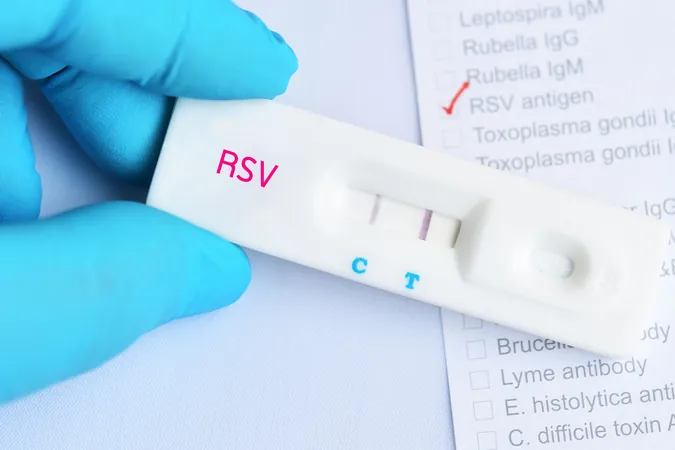
Unmasking the Danger: How RSV Outbreaks Pose a Serious Threat to Vulnerable Seniors
2025-08-07
Author: Wei
The Hidden Threat of RSV in Long-Term Care Facilities
Respiratory Syncytial Virus (RSV) is not just a seasonal nuisance; it's a silent killer, especially among the most vulnerable populations. Long-term care facilities, where infections can spread like wildfire, face unique challenges when an outbreak occurs. A recent gripping study focused on an RSV outbreak in a memory care unit at a Veterans Affairs-affiliated long-term care facility is shedding light on this critical issue.
A Shocking RSV Reality Check
According to the CDC, RSV can escalate from mild cold-like symptoms to severe complications such as pneumonia, especially in adults over 50 or those with underlying health issues. In fact, each year, between 110,000 and 180,000 seniors in the U.S. find themselves hospitalized due to RSV complications. Failure to act can lead to hospitalization or even death, making infection control in facilities not just important but absolutely essential.
RSV Outbreak: The Alarming Case Study
In 2022, a distressing RSV outbreak struck a 230-bed long-term care facility housing cognitively impaired male residents. Of the 29 individuals in the memory care unit, 20 tested positive for RSV. Surprisingly, despite the rapid spread, 8 were asymptomatic while 12 faced at least one respiratory symptom, underscoring the stealthy nature of this virus.
The Struggles of Infection Control
What made this scenario particularly troubling? The affected residents, many with dementia, had little understanding of hand hygiene and preventive measures, complicating efforts to contain the virus. The outbreak lasted 21 harrowing days, illustrating the dire need for effective infection control strategies.
Tackling RSV: Lessons Learned and Recommendations
Researchers post-outbreak proposed that facilities adopt stricter infection control measures to safeguard against RSV's relentless nature. Recommendations included rapid RSV testing for early identification, heightened cleaning protocols, and ensuring that RSV-positive residents are isolated in single rooms. These steps could transform infection management strategies across similar facilities.
Why We Need to Act Now!
As the world grapples with various health challenges, the elderly remain at risk from seemingly invisible threats like RSV. With no approved RSV vaccine for adults before 2023, it is crucial that care facilities prioritize infection control to protect our most vulnerable citizens. With the right measures in place, we can minimize the risks and save lives!


 Brasil (PT)
Brasil (PT)
 Canada (EN)
Canada (EN)
 Chile (ES)
Chile (ES)
 Česko (CS)
Česko (CS)
 대한민국 (KO)
대한민국 (KO)
 España (ES)
España (ES)
 France (FR)
France (FR)
 Hong Kong (EN)
Hong Kong (EN)
 Italia (IT)
Italia (IT)
 日本 (JA)
日本 (JA)
 Magyarország (HU)
Magyarország (HU)
 Norge (NO)
Norge (NO)
 Polska (PL)
Polska (PL)
 Schweiz (DE)
Schweiz (DE)
 Singapore (EN)
Singapore (EN)
 Sverige (SV)
Sverige (SV)
 Suomi (FI)
Suomi (FI)
 Türkiye (TR)
Türkiye (TR)
 الإمارات العربية المتحدة (AR)
الإمارات العربية المتحدة (AR)